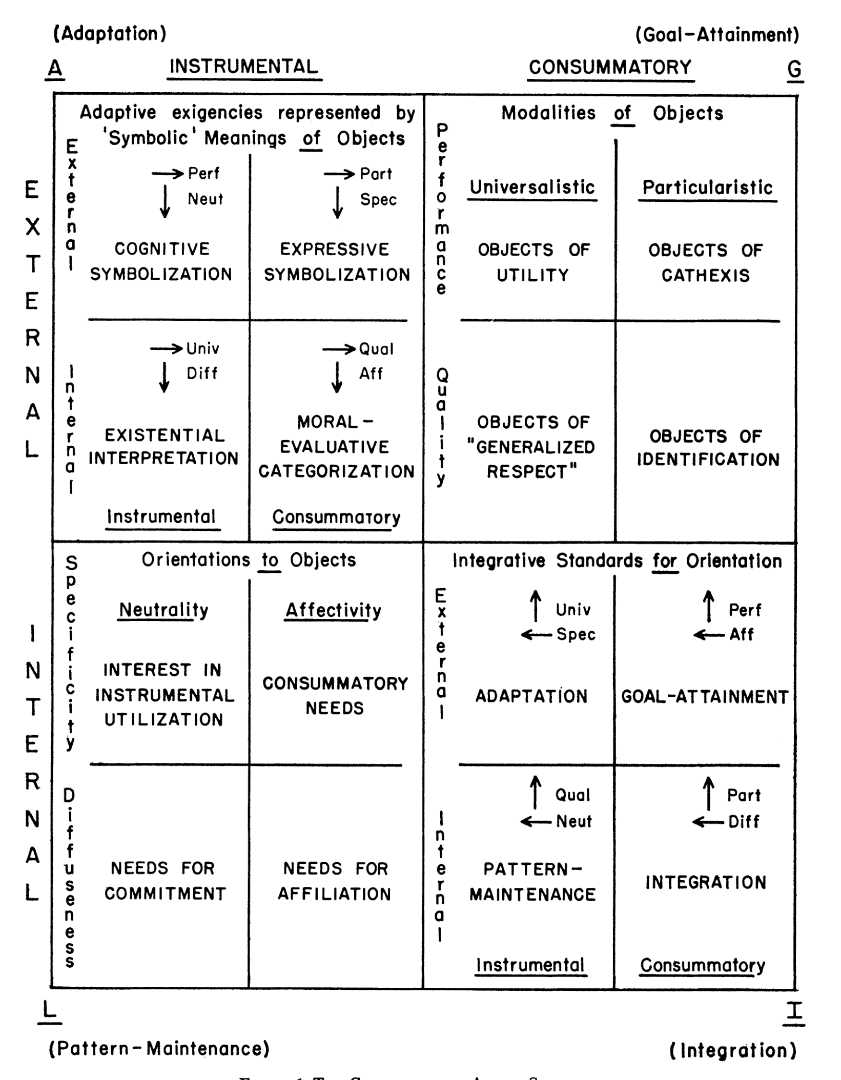The unit act involves the relationship of an actor to a situation composed of objects, and it is conceived as a Choice (imputed by the theorist to the actor) among alternative ways of defining the situation.
The unit act, however, does not occur independently but as one unit in the context of a wider system of actor-situation relationships; this system – including a plurality of acts – is referred to as an Action System. The unit act is the logically minimal unit of analysis, but as such it can be conceived empirically only as a unit of an action system. Even for analysis of one discrete concrete act, an extended set of similar acts must be postulated as part of the action system – for example, those comprising a particular role. Figure 1 below is a paradigm for any such action system, not only the unit act.

FIGURE 1. The Components of Action Systems
~
PARSONS, Talcott, 1960. Pattern variables revisited: A response to Robert Dubin. American sociological review. 1960. P. 467–483. DOI 10.2307/2092932.